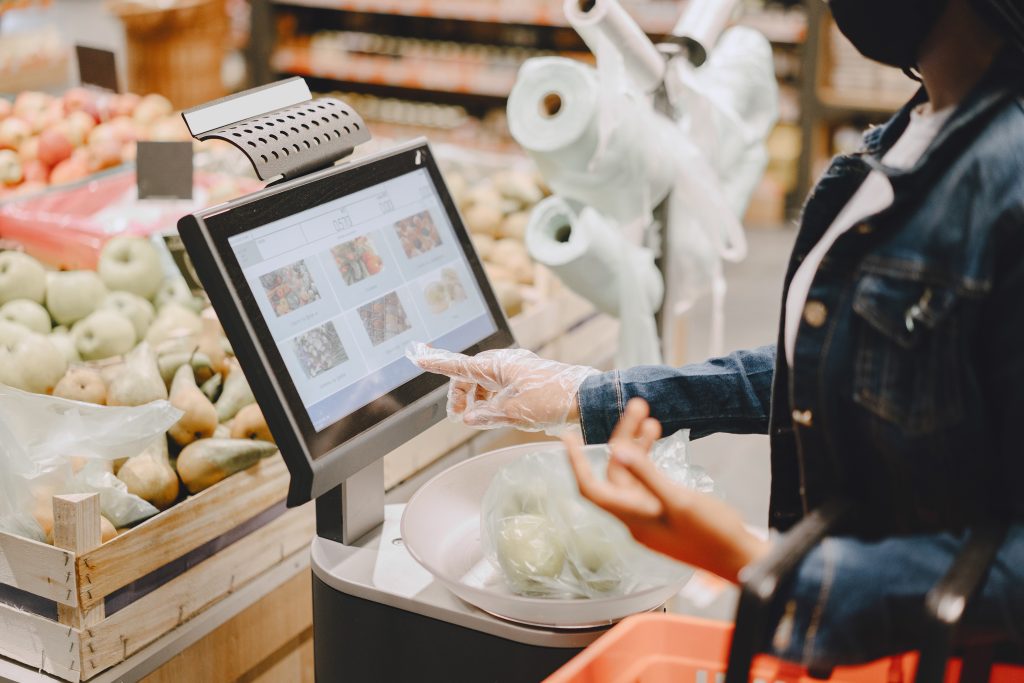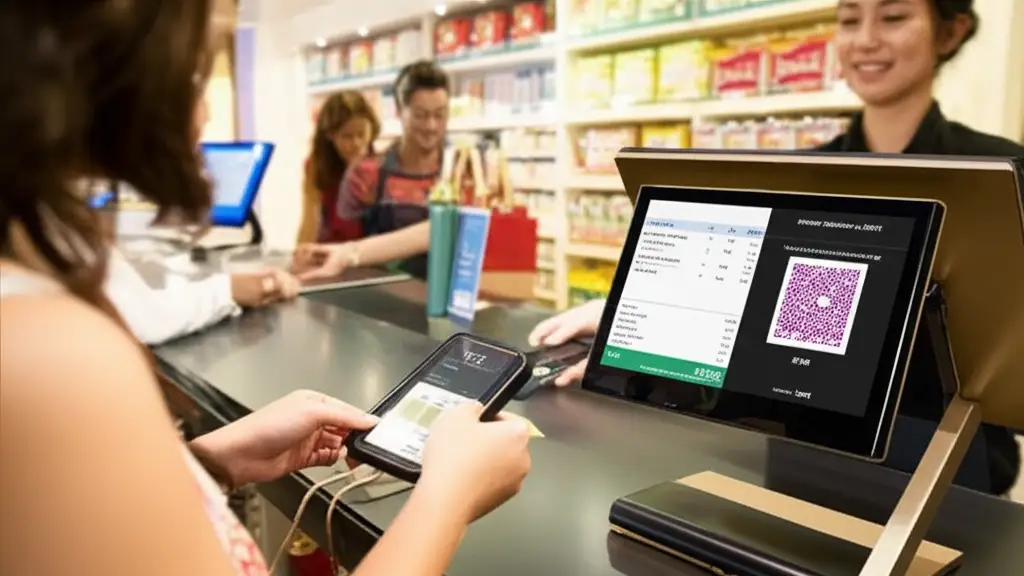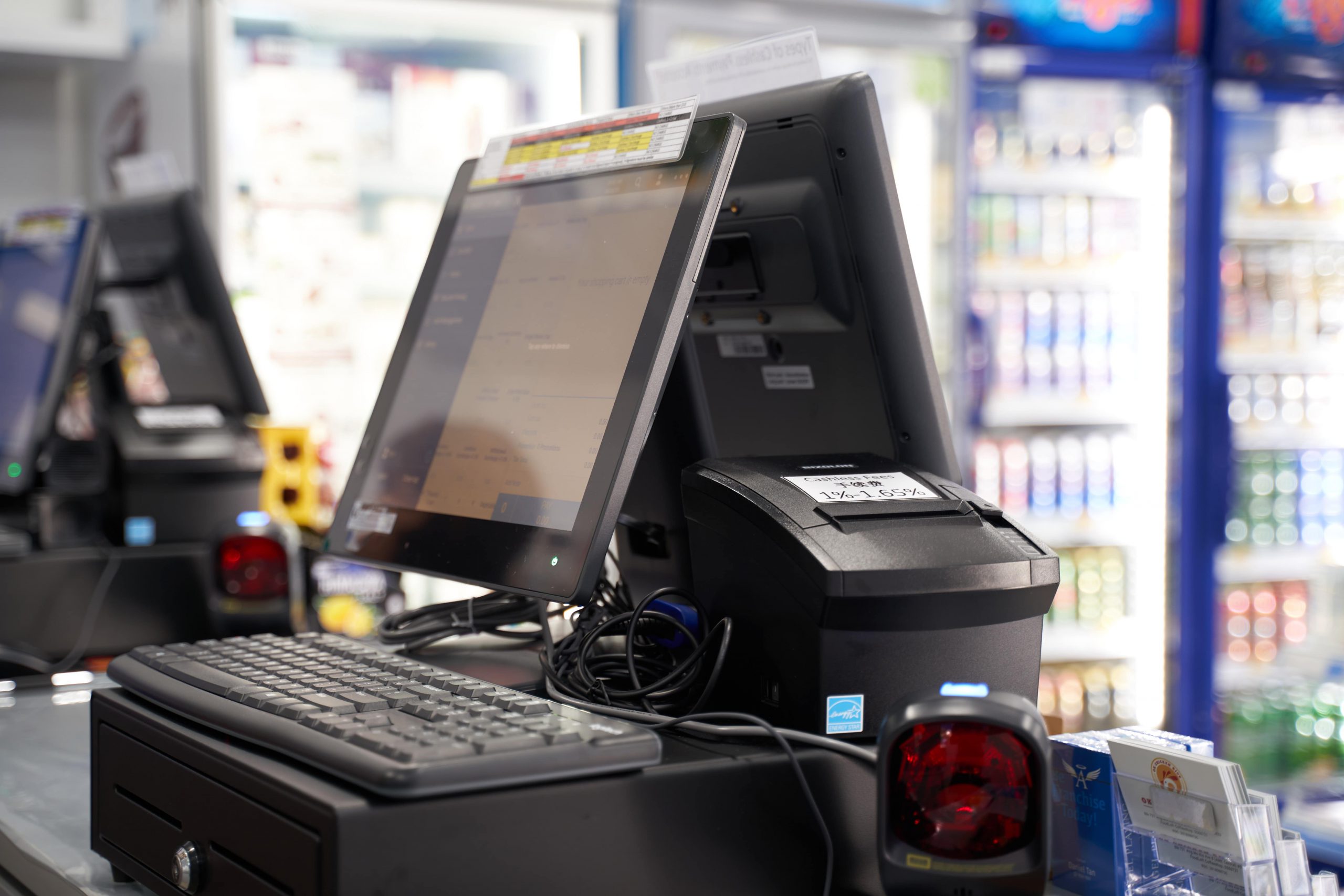In today’s fast-paced retail environment, having the right POS (Point-of-Sale) system can be the difference between thriving and just surviving. With dozens of options on the market, each promising speed, automation, and analytics, how do you know which POS System truly fits your business?
Here’s a complete guide to help you make the right choice:

1.Cloud-Based POS Systems vs. Traditional POS Systems: Which is Better?
Choosing the right POS System is one of the pinnacles to success for a retail business. For example, an independent clothing boutique would require different POS functions as compared to a streetside convenience store or major electronics retailer.
The following questions should help to shape your understanding of the type of POS System you would require:
- Is inventory management required across multiple outlets?
- Does my business require omnichannel capabilities for both online and in-store?
- How many team members will have access to the POS system?
- Should the POS system require customer loyalty tools to be integrated?
This list is non-exhaustive, but it is a good starting point for determining the type of POS System your business will require.
2. Cloud-Based POS Systems vs. Traditional POS Systems: Which is Better?
When choosing the best available POS System for your retail business, it is important to understand the key differences between a Cloud POS system and a traditional POS System.
Cloud POS System:
Access your POS system from anywhere, automatic software updates, lower upfront cost, and real-time data synchronisations over multiple locations.
On-Premise POS System:
Installed and operated on local hardware, higher upfront investment cost for equipment, full control over POS system data, requires manual updates and maintenance.
Most modern retail stores in 2025 opt for cloud-based POS systems for flexibility and cost-efficiency.
3.Top POS System Features That Boost Retail Efficiency and Operational Excellence
When evaluating POS systems, other essential features to look out for and help streamline retail operations for your business can include:
- Real-time inventory management to track stock levels across all locations
- Barcode scanning for fast, error-free checkout processes
- Customer profiles and purchase history to personalise potential loyalty benefits for different customer segments
- Refunds, exchanges, and layaway support for flexible transaction processing
- Built-in loyalty programmes and marketing integrations to drive brand loyalty
- User roles and access controls for secure employee management
- Sales and performance analytics for accurate data analysis
Bonus: Ask whether the POS can support seasonal promotions and discounts with ease.
4. How to Integrate Your POS System with Accounting, Inventory, and CRM Tools
To ensure maximum value of your Retail POS system, the POS system itself should be able to integrate with existing software your retail business already uses, which can include:
- Accounting software integration (e.g. Xero, QuickBooks) for automated financial reporting and reconciliation
- E-commerce platform integration (e.g. Shopify, WooCommerce) for omnichannel retailing, ensuring unified customer data between physical and online stores.
- CRM and loyalty app integration (e.g. Hubspot, Salesforce) for customer segmentation
- Payment gateway integration (PayNow, credit card, mobile wallets) for quicker and more secure payment transactions
- Marketing integration (e.g.WhatsApp, Mailchimp) for promotions and to drive repeat purchases
5. POS System Pricing: How to Calculate Cost and Maximise ROI
Understanding POS system pricing is essential for the retail business, as it is a direct factor in your operational costs. The total cost of a retail POS system can differ depending on the provider, integrations and features available. The final cost of purchasing a retail POS System, however, is heavily dependent on other aspects. To ensure accurate forecasting of operational costs for your retail business and sufficient return on investment (ROI), you can begin to consider factors such as:
Initial setup fees
- POS providers may charge the business for installation, onboarding and training.
Monthly or Annual Subscription
- Most cloud-based POS systems operate on a SaaS (Software as a Service) model, with recurring payments based on feature plans or store size
Add-ons
- Consider whether features like advanced inventory management, employee management, marketing integrations, etc would require additional fees.
Hardware Costs
- Tablets, barcode scanners or receipt printers may be sold separately by the POS provider
Hidden fees (e.g. per transaction or user)
- Transaction fees, user or product limitations might be part of the package as offered by the POS provider
6. Why Local Customer Support Matters When Choosing a POS Provider
Key considerations to look for in customer support for a POS provider include:
24/7 Technical Support
- 24-hour, 7-day-a-week technical support ensures your retail business can continue running smoothly during peak hours, weekends, and holidays
On-site or remote training
- For operational excellence, it is more effective to engage in on-site training where questions and queries can be brought up and dealt with immediately
Local team or reseller presence
- Having a local team in Singapore with an understanding of the Singapore retail landscape would greatly increase issue resolution and provide more relevant information
Knowledge base and self-help resources
- For a POS system that is being used in the long run with regular updates, it is crucial to have access to video tutorials, FAQs and other materials to be able to troubleshoot minor issues or get updated to new features quickly
In the Singapore retail space, having local technical support can save hours or even days in troubleshooting, ensuring your retail business minimises profit loss as much as possible.
7. POS System Hardware Compatibility: What You Need to Know Before You Buy
Before fully committing to purchasing the best retail POS system for your needs, there is also an essential need to consider hardware compatibility.
Hardware Compatibility Features to consider:
- iPads, Android tablets, or existing device compatibility to ensure the POS system can run on the current devices used within the business, to prevent extra cost
- Receipt printers and cash drawers compatibility to ensure smooth checkout experiences
- Barcode scanners and label printers compatibility to ensure accurate inventory count
- QR code reader compatibility to ensure smooth processing of cashless payments
Why Hardware Flexibility Matters
For SMEs, scaling is usually a long-term goal. To keep up with future demand and developments, utilising a retail POS system that has enough hardware and software flexibility is key to reducing time and setup costs and simplifying setup.
8. Advanced POS Reporting and Analytics: Key Metrics Retailers Should Track
In a data-driven world, a powerful Retail POS System should be able to provide real-time analytics and data-driven insights to optimise operations and increase profitability.
Key Metrics to Track for POS Reporting:
- Top-selling products and peak sale hours: identifying best-performing items and busiest shopping periods to optimise inventory and staffing
- Employee performance: measuring sales per employee, top performers and tracking productivity trends
- Inventory management and stock turnover: monitoring stock movement to avoid inventory issues such as over- or under-stocking and improve inventory management
- Customer lifetime value: analysing customer behaviour and repeat purchase rates in order to tailor the loyalty programs and increase retention
Why POS Analytics Matter
In order to better understand the customer’s needs for the business, efficient staffing and inventory management, POS analytics matters to prevent over- or under-stocking, accurate staffing to prevent over- or under-utilisation of manpower, and being able to meet demand to prevent revenue loss.
9. POS System Data Security and Compliance: What Every Retailer Must Know
With data breaches and cyber threats continuing to rise in the 21st Century, ensuring that your POS system is secure is critical to protecting your business and developing trust with your customers. A secure POS system will be able to ensure that there will be less of a risk of data breaches, data theft, fraud and compliance issues, especially when dealing with sensitive payment information. Essential features in a secure POS system can include:
PCI-DSS Compliance:
A POS System that accepts credit card payments and processes them securely in accordance with data protection industry standards would have PCI-DSS Compliance
End-to-End Compliance:
Ensure all transactions and payment data are encrypted both in transit and at rest to prevent unauthorised access.
Regular Backups:
Automated and secure data backups protect your business from data loss due to system failures or cyberattacks.
Password Protection & Role-Based Access:
Provide tiered access with role-specific permissions and strong password protocols to safeguard sensitive data.
Cloud POS Security:
Understand and learn how your data is stored in Cloud-based POS Systems
10. How to Choose a POS System: Read Reviews and Request a Free Trial First
Selecting the right POS System for your retail store is a critical decision for key operational excellence during the day-to-day and for long-term growth. Therefore, it is crucial to do due diligence to avoid any costly mistakes.
- Read verified POS reviews (Google, Facebook, Capterra) to gain an understanding of system reliability, support and ease of use in real retail conditions
- Ask peers or other local retailers for first-hand feedback on the user experience, pain points and issues whilst using the POS system in a retail environment.
By combining reviews, recommendations and real-world testing, you would then be able to choose a retail POS system that best meets your needs.
Transform your retail business today with EPOS
The right POS system doesn’t just ring up sales, it transforms how you manage, analyse, and grow your retail business. By focusing on what matters most to your operations and customers, you’ll find a solution that improves both productivity and profitability.
Looking for a POS System that’s designed for retail success in Singapore? EPOS provides modern POS solutions that are designed to help your business grow! Fully integrated with loyalty, marketing, and inventory management tools, all in one cloud-based platform!
SMEs are eligible for up to 50% support for the adoption of EPOS Pre-Approved Solutions under the IMDA SMEs Go Digital programme. We also offer Digital Marketing Solutions for SMEs seeking business growth, providing tailored marketing strategies catered to the unique needs of each business. Last but not least, keep your customers returning with the EPOS Loyalty Program, powered by WhatsApp.
Fill in your details below and we will get in touch with you as soon as possible!


